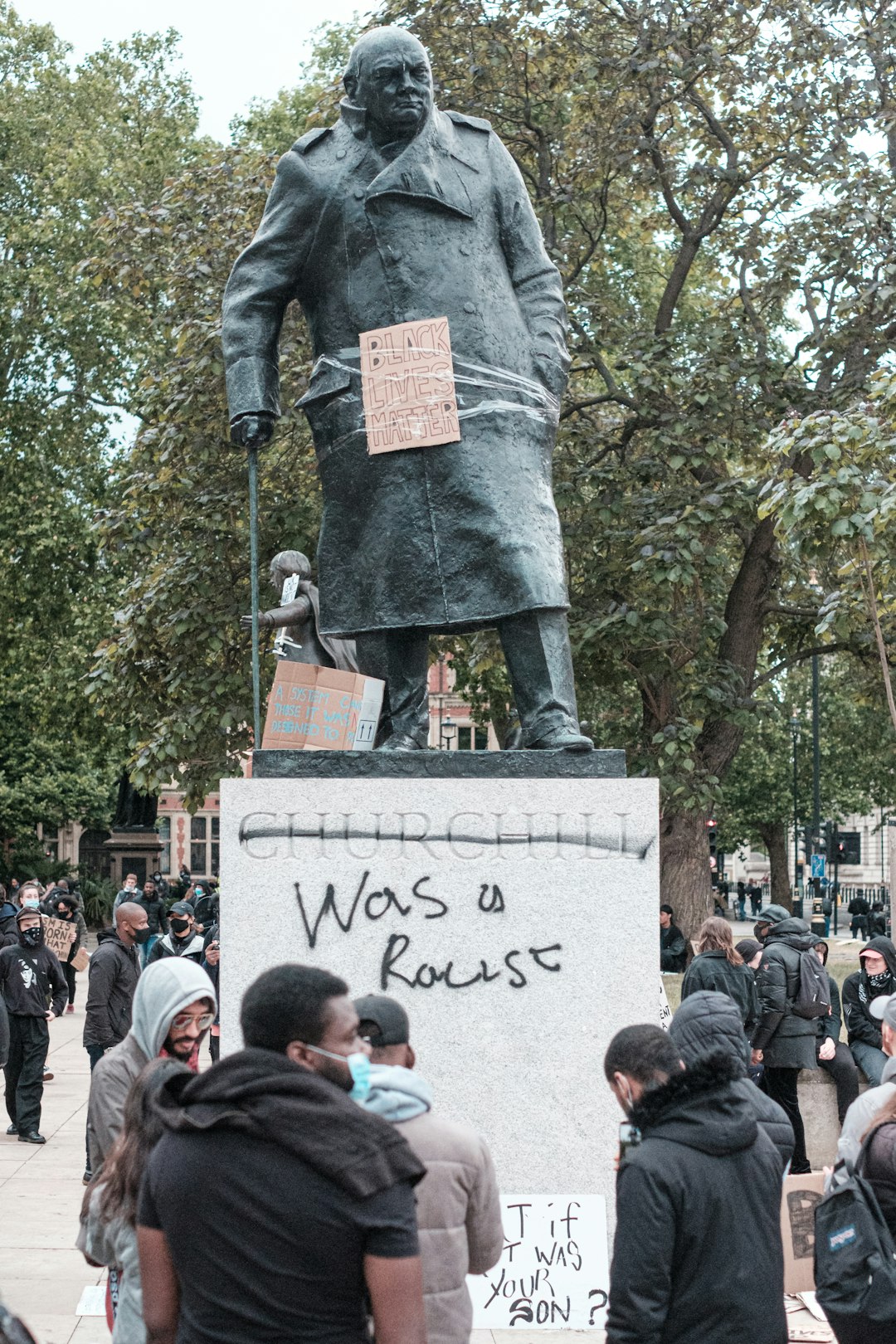
“Without an ability to feel gratitude, all human life and human experience is a marketplace of blame, where people tear up the landscape of the past and present hoping to find other people to blame and upon whom they can transfer their frustrations.” -Douglas Murray (The War On The West)
There is a banal cliche - “You don’t know what you’ve got ‘til it's gone’ - a terribly sad sentiment most famously sung by Joni Mitchell in her 1970s hit Big Yellow Taxi. Widely considered an anthem for the environmental movement - the chorus containing the hook, “they paved paradise and put up a parking lot,” and the first three verses, conjure images of an industrial encroachment devastating a natural landscape.
It is not until the fourth verse when Joni sings - “Listen, late last night, I heard the screen door slam And a big yellow taxi took away my old man” - does the focus switch from ecological concern, to an expression of personal loss. Who is the old man? It is not for the audience to know, Joni only reminds us that “you don’t know what you’ve got ‘til it's gone.”
Though this may be piercingly melancholic, there is a more sullen possibility. Can the reader imagine the tragedy of never knowing what was had, before, or after it’s gone? Sadly there are those who live, and who have lived, rarely ever scratching below the distracting spectacle of the surface world's mawkish triviality, clasping what is available for all to study, experience, and celebrate.
Despair arises when we realize something of value has been lost. This is common to the human experience. It is a prerequisite of redemption, progress, and love. The sting occurring in loss is not easily stricken from memory. But episodes of temporary disillusionment most often proceed transformational growth that cannot be achieved before turmoil disrupts peace. All is not lost.
This can lead to an appreciative evaluation of what remains. Resolution to not take for granted the people in one's life, or those who came before and passed on tradition. To appreciate the stoic human effort that upholds the edifice of society, making possible a quality of living never before imagined throughout history's vast and violent tangle. To not cast aside the cultural artifacts of our distant ancestors as outmoded in a modern cosmopolitan age. Or worse, pass judgment over the entirety of Western traditions by reducing their legacies to a singular narrative: an oppressive white supremacist project of colonialism.
In George Eliot’s Middlemarch the gratitude for those upon whose shoulders we stand is expressed poignantly - “For the growing good of the world is partly dependent on unhistoric acts; and that things are not so ill with you and me as they might have been, is half owing to the number who live faithfully a hidden life and rest in unvisited tombs.”
Frozen in the lugubrious trance of loss, where time stands still, and purpose dissolves to dust, a glimmer of hope remains. Although the aforementioned cliche, the slow motion shock, the delayed realization, is eternally lamentable, in the case of perhaps what represents humanity's greatest achievement, this sense of loss manifests as premonition. Even though Western culture is not yet gone, it is being revised, if not erased. And while this should be considered alarming, a general spirit is awakening, cautiously optimistic of the fact that we are still surrounded by many triumphant examples of the achievements of Western civilization.
Optimistic that many are becoming alert to the implications of a War On The West. There now exists among a growing body of Westerners, a belated but expanding vexatiousness intersecting with the stark apprehension that something of value is slipping away, even while the situation is not yet beyond repair. There is nothing more that drives a people to preserve their culture and traditions, than when others seek to obliterate them. This state of affairs tends to inspire those who would not have cared as much if Western values were not under such relentless and vicious assault.
Revealed is the profound importance of gratitude, linked to the renewal of Occidental values. Though its inhabitants have always been very much immersed in all that Western civilization has to offer, now so with a renewed appreciation and sense of stewardship, unlikely in less turbulent times. With this new gratitude, they must gather and energize a large constituency capable of protecting the foundational pillars of the great Western dominions.
Maybe this is just the way it is. We do not appreciate what we have until the threat of its loss is upon us, or until it is too late. This threat being the thing that raises us to act, to intervene, to push back, to do what is necessary to safeguard, what in this case in all fairness, is the paragon of human achievement. The preservation of Western culture (which absolutely deserves a fair historical rendering) should be the highest priority of all with an ounce of understanding of the enormous contribution the Western world has made for the benefit of humanity. A fair assessment cannot conclude otherwise.
“...in the twenty-first century, as the tide of Western dominance palpably retreats, assumptions bred of Europe’s ancestral faith continue to structure the way that the world organizes itself.” - Tom Holland (Dominion)
While this may be so, the West is in the clutch of convulsion, a bizarre internecine iconoclasm, rooted in a deep fear and loathing of homeland. That the Greeks felt the need to have a word for this - oikophobia - (oikos meaning home), reveals that revulsion or phobia toward one's native environment is not new.
Even though, as Tom Holland has observed, liberalism is like a secularized version of Christianity, everything of the Western world, including its religious traditions, has been so unfairly branded with the mark of original sin, that a balanced interpretation of why this is, can only be found in the margins where displaced voices of dissension refuse to toe the line. The topic of the Op-Ed What’s Going On With Unmarked Graves In Canada?, includes citations from some of these narrative-contradicting dissenters.
If a resentful, mutinous, and backwardly paranoid movement wished to destroy an adversary, it would do well to target the founding principles of which that enemy exalts. Delegitimize their story as nothing more than apologetics, covertly vying for the maintenance of a deceptive hegemony. In the name of virtuous sounding edicts involving equity and antiracism, the West is currently under such an attack. From within, the attackers are hostile to the notion that there is anything redeemable to be found in the vast confluence of cultures representing the Western world, from inception to the present moment, save for colonization, oppression, and white supremacy.
Perhaps no one has chronicled the lassitude of this real-time Western collapse better than Douglas Murray. In his book The War On The West, Murray makes the observation that - “...while it is true that a society that allows its most talented people to rise as seamlessly as possible can be advantaged, there is no evidence that a society thrives by developing the racial and cultural obsessions that the West has now developed.”
At other points, Murray proclaims that only countries of the West are undergoing such ungenerous re-examination through lenses of race and gender equity. Only the “triumphant inventions” (as Canadian law professor Bruce Pardy has called them) of the West are subject to such lopsided scrutiny. Many Non-western countries not only do not have antiracism policies, they have overtly racist ones. But these nations seem conveniently ever to escape the critical lens that has so thoroughly condemned the West.
Postcolonial studies provides a rich source of the ahistoricism, where much of the West's self-disgust has been codified in theory. Commenting on its rise Murray opines - “Just as a previous period had been unable to admit to any flaws in empire, so the postcolonial period had been unable to recognize anything positive that had happened...this solely negative view of empire that led to a feeling of guilt among former colonial powers had in turn led to a reluctance to deal with any of the world’s present problems.”
And there we have it, the key factor that goes largely unmentioned. Take Canada’s issues with the Indigenous peoples. Very little airtime is given to what is being done to deal with present day issues on remote and dependent Indigenous reserves, unlike the media’s constant projecting of sensationally ghoulish stories about unmarked graves and murdered children near former Indigenous residential schools. Long has it been a trend in the Canadian government to empower the activist-academics, lawyers, and neotribal elites of the Aboriginal Industry to forever look back on past mistakes.
No politician seems interested in addressing the reality of the present situation, and they distract from this by endlessly issues cheques and apologies, while automatous legacy media repeat horrible stories, sufficiently heart-wrenching as to ensure no Canadian would dare interrupt the desperately needed healing, truth, and reconciliation, to ask for evidence of crimes, or receipts from transfers.
Canadians for the most part have remained silent. Many go along with the race essentialism of postcolonial theory, believing White Europeans owe a debt to the world for past wrongs. But many still chose not to go along with what often amounts to insincere genuflection and cringe-inducing virtue performance. Choosing to adopt an attitude similar to Tom Holland or Douglas Murray, regarding European heritage, is believing that its benefits have been distributed throughout the world, for the betterment of the world.
There are historical examples of forced participation in Western projects. This is part of the story that no honest person denies. But it is by no means the whole story. The net result of European colonization can only be conceived of as a success story, a global benefit. Another situation, best described as the one-way phenomena of migration into the West, is further proof of the wide-spread desire for participation in Western culture. There are no refugees fleeing Western countries, bound for non-Western ones. It’s time Westerners started asking themselves why that is. It’s time for Westerners to start realizing the existential threat the West is presently under, before it's too late, before it’s gone.
To squander what a thousand generations labored to build, would be an unimaginable tragedy. The rightful inheritance of the next generation, is not for this one to lose.
_______
Thanks for reading. For more articles like this one read GREAT BRITAIN: A CONQUEROR WITH A CONSCIENCE by Canadian author Peter Best




A very articulate and insightful article reflecting the current dysfunctional social pathology of toxic conformity and mass hysteria. We seem to be dangerously close to the dystopian state where society becomes completely bereft of logic and reason much like a zombie apocalypse without the zombies.
Thanks for sharing.
So well written. It absolutely reflects my own sadness and worry about the current state of affairs in our culture. I do hope that it is not too late and that we are able to shake off this apathy that seems to hold so many in an almost trance like passiveness.